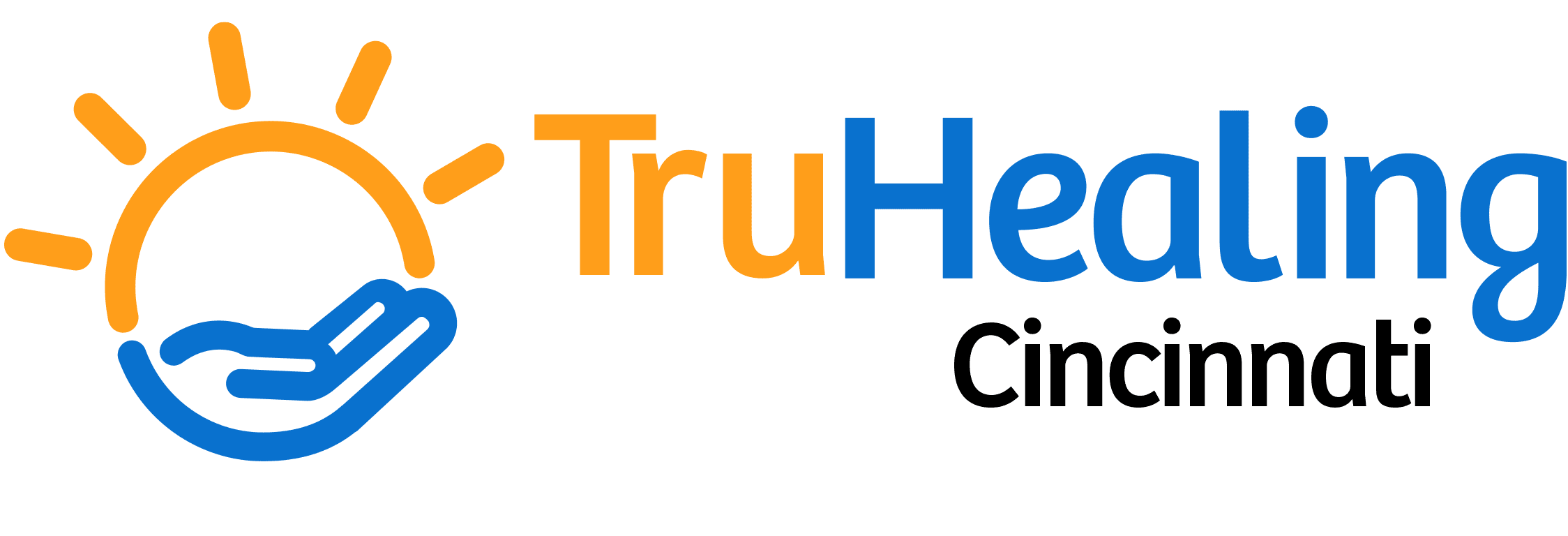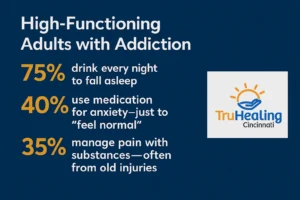You probably don’t look like someone who needs treatment.
You’ve got a job—or a few roles you juggle. Maybe you lead a team, run a household, care for others, keep up appearances. You might even be the person people come to when they need help.
But somewhere in the cracks of all that functioning, something has started to slip.
Maybe it’s drinking every night just to fall asleep—or to quiet your brain long enough to relax. Maybe it’s medication you started using for anxiety, but now you need more just to feel “normal.” Or maybe it’s not one thing—it’s that dull, persistent sense that something isn’t right, and you’re tired of pretending it is.
You’re still showing up, still holding it together. But it’s getting harder. And quieter. And lonelier.
That’s the reality for a lot of high-functioning adults living with addiction. And here’s what many don’t know:
You don’t have to step away from your life to start healing.
Outpatient addiction treatment can meet you exactly where you are—exhausted, uncertain, and not ready to disappear. It’s not a last resort. For many high-functioning people, it’s the best first step.
The Myth of “It Has to Get Worse First”
There’s this unspoken rule in our culture: that you’re only allowed to get help if everything has already fallen apart.
But you don’t need to hit “rock bottom” to be in pain. In fact, high-functioning addiction often hides in plain sight.
Maybe your career’s on track. Your relationships seem okay. But you’re barely sleeping. You’re drinking more than you’re comfortable with. You feel like you’re constantly managing something—but no one sees how much effort it takes.
Here’s the truth: if you’re suffering, it’s serious enough. You don’t need a crisis to qualify for care. You don’t need to explain or justify your struggle. You just have to be tired of managing it alone.
What Outpatient Addiction Treatment Actually Looks Like
A lot of people assume treatment means vanishing for 30 days. But outpatient treatment is different.
It’s structured care that works with your life—not in place of it.
At TruHealing Cincinnati, our outpatient addiction treatment services are designed for people who:
- Still have work, school, or family responsibilities
- Need clinical support, but not full-time care
- Want to keep their routine while they heal
- Value privacy, flexibility, and professionalism
This isn’t “just therapy.” It’s a coordinated approach that might include:
- Individual counseling to unpack what’s driving the behavior
- Group therapy to reduce isolation and build honest connection
- Medication support, if needed, to manage symptoms or cravings
- Case management to help with stressors that feed the cycle
You don’t have to give up everything to get your life back.
You Can Keep Your Life—and Change What’s Not Working
Many high-functioning adults don’t seek treatment because it feels like stepping away from their identity.
You’ve built a world around being capable. You’re the strong one. The leader. The one who holds things together.
But outpatient care doesn’t ask you to stop being who you are. It helps you stop hiding the parts of yourself that are hurting. It gives you space to be whole—not just functional.
We see this all the time with professionals, parents, teachers, first responders, students—people whose lives are “fine” on paper, but breaking in the margins.
Starting Doesn’t Mean Announcing
You don’t have to post anything. You don’t have to tell your boss, your neighbor, or your extended family. You don’t even have to tell your best friend if you don’t want to.
Outpatient care is private, discreet, and often scheduled around your life. Early mornings, lunch hours, evenings—whatever works.
And if you live outside Cincinnati, we’ve got you covered. If you’re looking for outpatient addiction treatment in Lawrenceburg, Kentucky or Lexington, Kentucky, TruHealing can help you explore services in your area or accessible options nearby.
This isn’t about announcing a new identity. It’s about getting the support you need to come home to the one you already have.
High-Functioning ≠ Low Risk
It’s easy to assume that if you’re still performing, you’re still okay.
But the reality is, people who manage high-pressure lives with addiction often face higher risk—because no one sees it coming. Not even them.
If you’ve told yourself things like:
- “I’m not like those people.”
- “I’m still doing fine at work.”
- “No one knows, so it must not be that bad.”
—then outpatient treatment might be the safe place where you can finally stop running those scripts.
You’re not being dramatic for wanting help. You’re being honest.
There’s a Way to Keep Going—and Actually Feel Better
What happens when you stop using? When you walk into treatment, even part-time? Will you fall apart?
Not likely.
What we see most often is this: people breathe.
They breathe deeper. They sleep better. They notice things again—like music, food, laughter, focus. They start telling the truth more easily. They stop spending so much energy pretending.
You don’t have to lose your edge. You just don’t have to hurt to stay sharp.
Frequently Asked Questions
Will I have to tell my employer I’m in treatment?
Not unless you choose to. Outpatient programs can often be scheduled around your workday, and your medical care is protected by privacy laws like HIPAA.
What if I don’t think I’m “addicted”—just struggling?
You don’t need a label to seek help. If substance use is starting to affect your focus, relationships, or sense of self, outpatient care can help—no diagnosis required.
How much time does outpatient treatment take?
It varies. Some clients attend just a few hours a week. Intensive outpatient programs (IOPs) might involve 9–12 hours across several days. We’ll help you find the right level of care for your situation.
Can I stay at home during treatment?
Yes. That’s one of the core benefits of outpatient care—you stay connected to your life while receiving professional support.
What if I’ve tried treatment before and it didn’t help?
That doesn’t mean it can’t work now. Treatment is a process, not a one-time fix. The structure, providers, or timing might not have been right. We can build a care plan that meets you where you are today.
You Don’t Have to Break Down to Begin
If you’ve been managing—but secretly burning out—this is your sign.
You don’t have to quit your job. You don’t have to vanish for 30 days. You don’t have to explain anything to anyone unless you want to.
You just have to be tired of doing this alone.
Call (888) 643-9118 to learn more about outpatient addiction treatment in Cincinnati. We’ll help you take the next step—quietly, confidently, and without stepping away from the life you’ve worked so hard to build.


